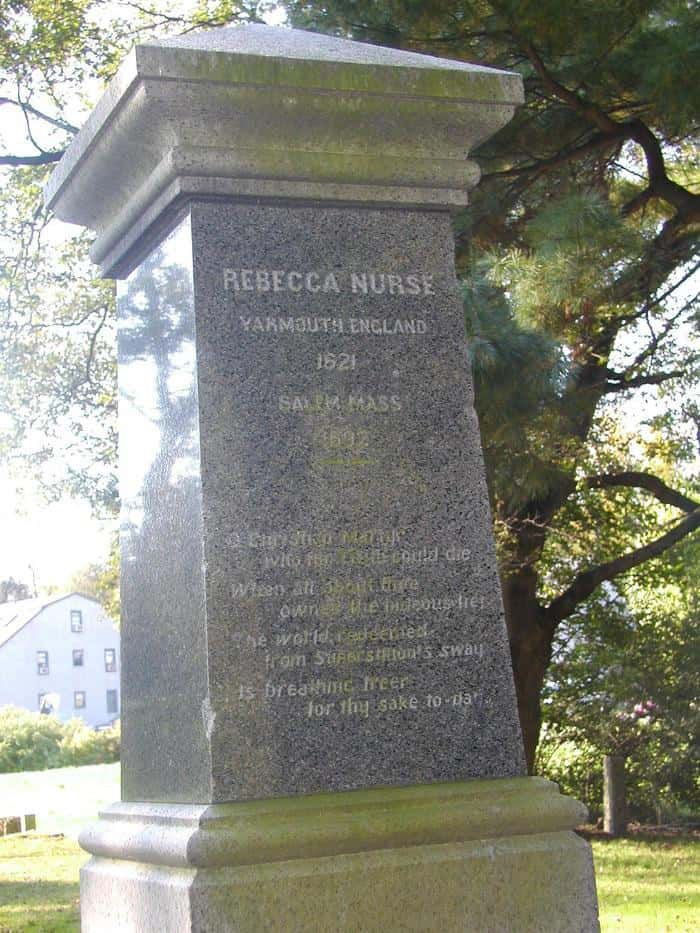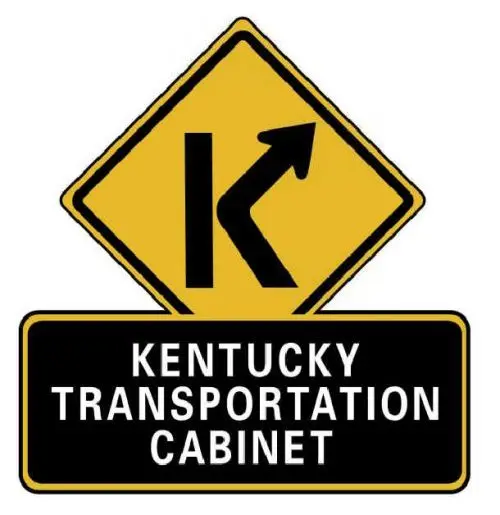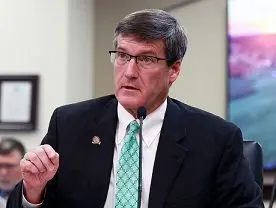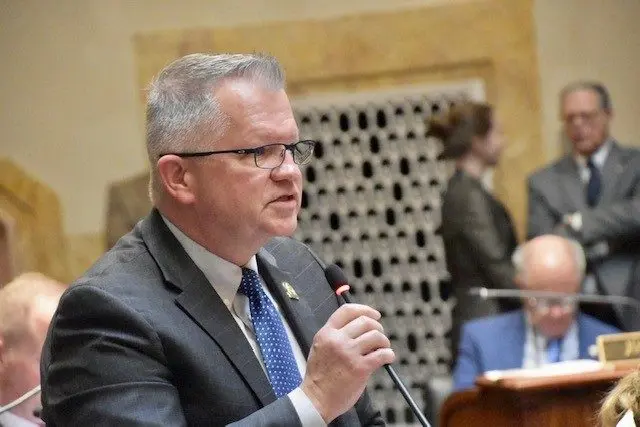Marshall County Family Has Ties to Salem Witch Trial
Written by Justin D. Lamb

On March 24, 1692, Rebecca Towne Nurse, a 71-year old grandmother of Salem, Massachusetts was arrested and charged with witchcraft. Regarded as one of Salem’s most pious and respected citizens, Nurse’s arrest was a complete surprise to the community of Salem. How did this distinguished member of Salem become accused of the evil charge witchcraft and what is her connection to Marshall County, Kentucky?
The infamous Salem Witch Trials began in January 1692 when Dr. William Griggs diagnosed 9-year-old Elizabeth (Betty) Parris and 11-year-old Abigail Williams with bewitchment following a series of unexplained fits which included uncontrollable outbursts, screams, and spasms. Not long after the “bewitchment” of Parris and Williams, other young girls in the community began to exhibit similar symptoms including Ann Putnam Jr., Mercy Lewis, Elizabeth Hubbard, Mary Walcott and Mary Warren and soon hysteria took hold in Salem.
Looking to end the “devil’s hold on the children of Salem” and searching for someone to pin the blame on, arrest warrants were issued for Tituba, the slave girl of the Parris family, along with two other women—-the homeless beggar Sarah Good and the poor, elderly Sarah Osborn, whom the girls accused of bewitching them. By June, Bridget Bishop was tried and became the first hanged for witchcraft. According to the history of Massachusetts, “Eighteen others followed Bishop to Salem’s Gallows Hill, while some 150 more men, women and children were accused over the next several months.” As a special court was convened to find the “witches” of Salem, Abagail Williams and Ann Putnam turned their accusations toward one of Salem’s most respected citizens— Rebecca Towne Nurse.
Born in Yarmouth, England in 1621 to William Towne and Joanna Blessing, Rebecca and her entire family immigrated to the Salem around 1638. Rebecca married Francis Nurse in 1640 and raised a family of eight children on one of the largest and most productive farms in Salem Village. It is the consensus of many historians that the Putnam family was behind the witchcraft accusations of Rebecca Town Nurse in retaliation due to a long-standing land dispute between the two families over the boundary of their adjoining land. “All of Rebecca Nurses’ accusers, including Abigail Williams, Ann Putnam, Jr., Ann Putnam, Sr., Edward Putnam, Thomas Putnam, Henry Kenney, Mary Walcott, and Elizabeth Hubbard were either Putnam family members or friends of the family.” In addition, Nurse had vocally criticized the witch trials which had made her a prime target.

At the trial, the accusers charged that Nurse had appeared at their homes in spirit form to attach and torment them. Nurse denied all accusations and it was learned that she had often criticized the accusing girls of dabbling with fortune telling prior to the witch trials. In a statement to the court, Nurse declared, “I can say before my Eternal Father I am innocent and God will clear my innocency…The Lord knows I have not hurt them. I am an innocent person.” Thirty-nine neighbors and friends also stood behind Nurse and signed a petition upholding her character and proclaiming her innocence. At the end of the trial, Nurse was declared not guilty.
However, following the reading of the verdict, the accusing girls began to have seemingly uncontrollable fits and cried out against Nurse. Chief Justice William Stoughton asked the jury to reconsider their verdict and suggested that the jury had not heard Nurse refer to accused witch Goody Hobbs as “one of us” during her trial. When the jury foreman later questioned Nurse as to the exact meaning of her statement, she would not reply. “This lack of a response, probably due to Rebecca’s partial deafness, was unexpected. The jury foreman waited briefly, then returned to the jury, and soon came back with a verdict of guilty.”
Following the trial, Nurse penned a statement explaining that she only meant Hobbs was a fellow prisoner, not a fellow witch. It was too late. Her fate was already decided. She was publicly excommunicated from the church and was hanged at Gallows Hill on July 19 along with four other convicted “witches.” Due to her charge of witchcraft, Nurse was not allowed a Christian burial and her body was cast off into a shallow ditch. According to legend, her son Benjamin recovered her body, removed it from the ditch, and gave her a proper Christian burial in secret on the family farm in Salem Village (present day Danver, Massachusetts).
Two of Nurse’s sisters, Mary Easty and Sarah Cloyce, were also tried and convicted of witchcraft. On September 22, Easty was hanged at Gallow Hills while Cloyce was later exonerated. Nurse’s mother Joanna Blessing Towne was also accused of witchcraft, but never tried. By 1693 the witch trials came to an end as the court banned the use of spectral evidence in trial and many began to realize the accusations of witchcraft as baseless. In 1706, Ann Putnam, Jr. apologized for her part of accusing the innocent in the Salem Witch Trials.
Nearly 174 years after Nurse was hanged at Gallows Hill, Philo Town, who was a direct descendent of Rebecca Towne Nurse’s brother, Edmound Towne, settled in Marshall County, Kentucky. He married Josie Washburn and had four children, Dollie Town Lovett, Dora Town Mobley, Lora Town Miller, and Rupert Town. Almost three and a half centuries later after the witch trials ended, many in the same bloodline of Rebecca Towne Nurse reside in Marshall County and have the blood of a “witch” flowing through their veins.
Note: Thank you to Tami Miller Schott for her assistance with this article.






